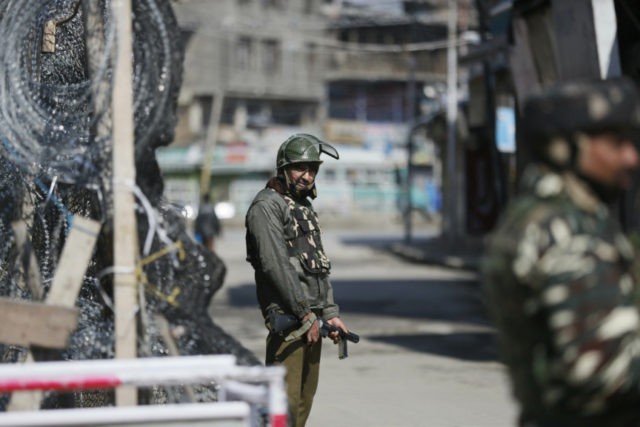The government of Pakistan announced on Tuesday it has commenced a promised crackdown on Islamist militants, detaining dozens of suspects – including members of the group that attacked an Indian convoy last month – and implementing policies that should make it easier to seize the assets of banned organizations. Indian officials expressed skepticism that this crackdown will be more effective than any of Pakistan’s previous efforts to control terrorism after intense international pressure.
Pakistan said some of the people detained and investigated on Tuesday are named in a dossier of suspects India presented to Pakistan after the suicide bombing that precipitated current tensions in the Kashmir region.
“We are investigating them and if we get more evidence, more proof against them, they will be proceeded against according to law and if we don’t get any proof their detention will end,” said Pakistani Interior Minister Shehryar Afridi.
The 44 detentions announced by Pakistan included the son and brother of Jaish-e-Mohammed leader Masood Azhar. Both of those individuals were named in the Indian dossier. Pakistani officials said they were placed in “protective detention.”
Pakistani Foreign Minister Shah Mehmood Qureshi said last week that Azhar himself is living in Pakistan but he is “unwell, to the extent that he can’t leave his house” and he will not be arrested unless India presents “solid” evidence of his guilt.
Jaish-e-Mohammed is the group that claimed responsibility for the attack on the Indian convoy. Interior Ministry secretary Azam Suleman Khan said the crackdown did not focus entirely on them because “we don’t want to give the impression that we are against one organization.”
Pakistan also announced new measures to “speed up action against all proscribed organizations,” making it easier to seize their assets.
The Indian government did not immediately respond to Pakistan’s announcements, but an anonymous official expressed skepticism to Reuters.
We have all seen this done for the last several decades now. How many times has Hafiz Saeed been arrested and let out? And have they taken action against Jaish camps?” the official said.
Hafiz Saeed is the founder of Lashkar-e-Taiba, the group responsible for the brutal 2008 massacre in Mumbai. He has been designated as a terrorist by both the United States and the United Nations.
Saeed’s current organization Jamaat-ud-Dawa (JuD) and a foundation it established were added to the list of banned organizations in Pakistan on Tuesday after persistent Indian criticism that Saeed’s operations were merely on a much less restrictive watch list. Pakistan’s reluctance to take strong action against Saeed and his organizations is often cited by India as evidence the Pakistanis are not serious about fighting terrorism.
JuD reportedly runs 300 Islamic schools, several hospitals, and an ambulance service, boasting hundreds of paid employees and almost 50,000 volunteers.
Tensions between India and Pakistan, which seemed on the brink of war last week, appear to have improved considerably. As of Tuesday, the loudest argument between the two nations consisted of India denying Pakistan’s claim that it chased an Indian submarine away from its waters on Monday night.
The Pakistani military showed off photographs allegedly depicting the sub cruising along the surface on Monday night and boasted they could have “easily engaged and destroyed it, had it not been for Pakistan’s policy to exercise restraint in the face of Indian aggression and to give peace a chance to prevail.”
Indian officials also dismissed Pakistani claims of shooting down an Indian Sukhoi fighter jet as a “total lie” and said “all options are on the table” if another terrorist attack against India comes from Pakistani territory.

COMMENTS
Please let us know if you're having issues with commenting.